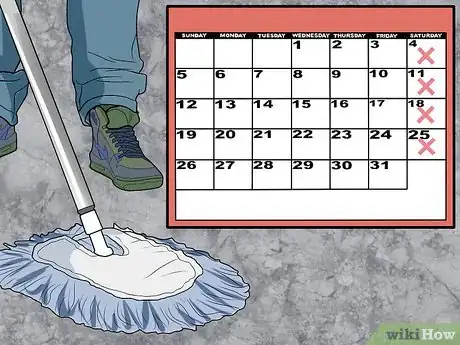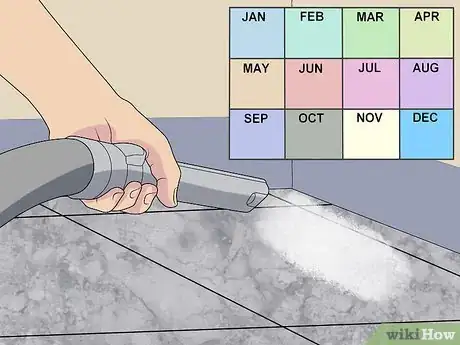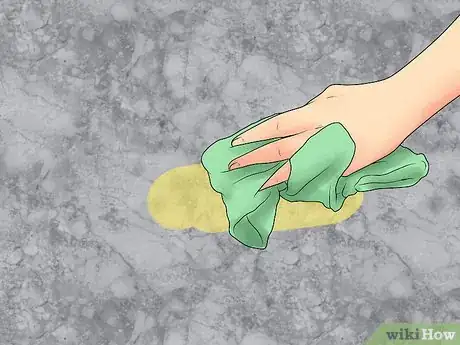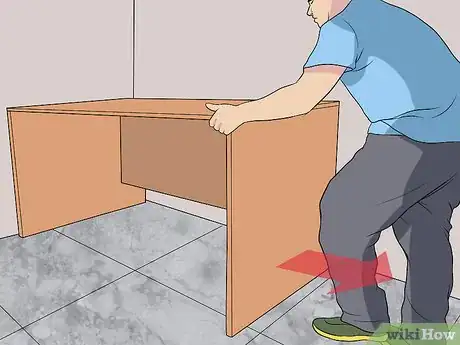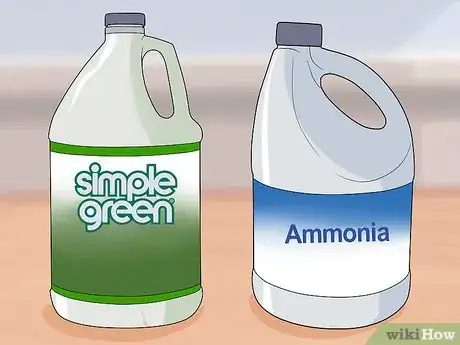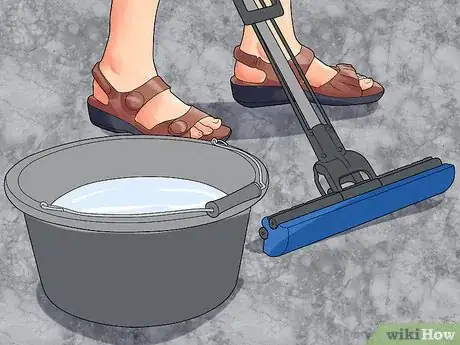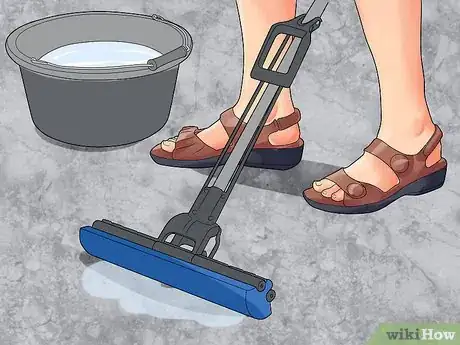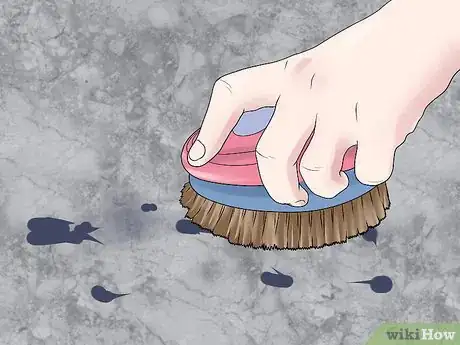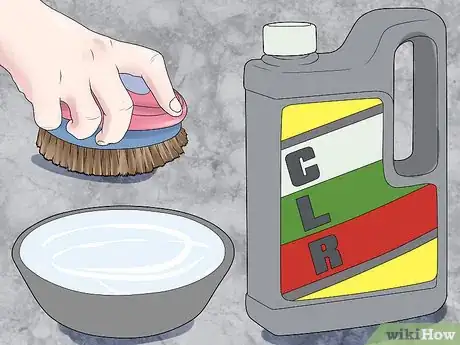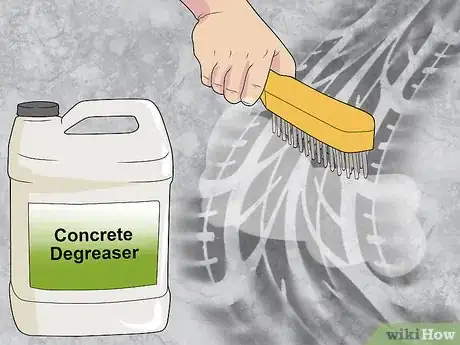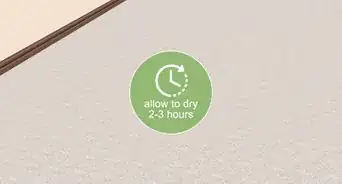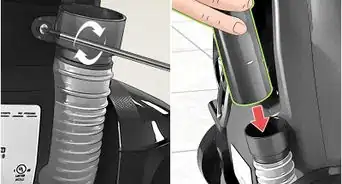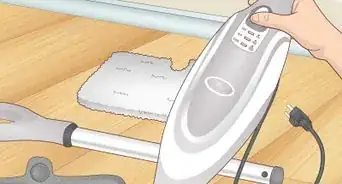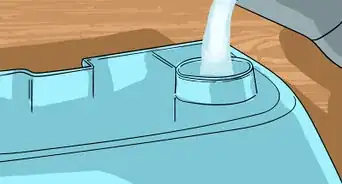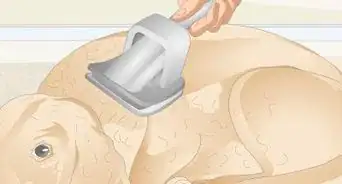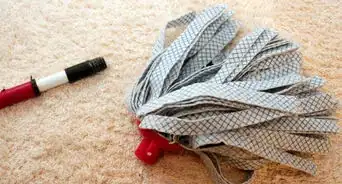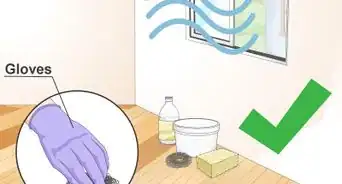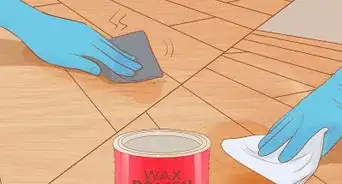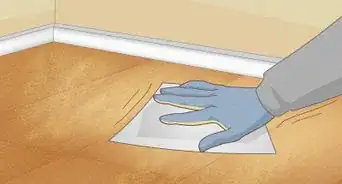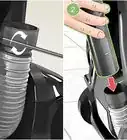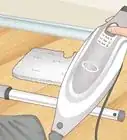This article was co-authored by Michelle Driscoll, MPH. Michelle Driscoll is the Owner of Mulberry Maids, which is based in Fort Collins, Colorado. With five years of experience, her business specializes in cleaning homes and small offices. She holds a Masters in Public Health from the Colorado School of Public Health. Additionally, Mulberry Maids has an A+ rating from the Better Business Bureau.
This article has been viewed 60,300 times.
Epoxy floors are not hard to maintain. In fact, many people choose epoxy floors for their garages because they are so easy to care for. However, there are some guidelines for keeping your epoxy floors clean. By performing general maintenance, doing a deep cleaning every few months, and removing stains as needed, you can keep your epoxy floors in excellent shape.
Steps
Performing General Maintenance
-
1Dust mop once a week. The best way to maintain your epoxy floor is to run a soft dust mop over it once a week. This removes dirt and dust gently, which prevents scratches and protects your floor.
- For floors with an anti-slip aggregate coating--such as aluminum oxide--a soft bristle push broom may be more effective than a standard dust mop.
-
2Vacuum any joints once a month. If you have visible construction joints or saw cuts, you should use a vacuum to clean these out. For best results, use your vacuum attachment hose with a crevice tool. Vacuum these joints about once per month.[1]
- If you do not have a vacuum, you can try to clean any joints/cuts with a stiff bristle broom.
Advertisement -
3Clean spills immediately with a soft cloth. Oil, chemicals, or even just water left to sit for too long can damage your epoxy floors. Clean any spills as soon as you see them using a soft towel or cloth. You can use a gentle cleanser--such as Windex--if a spill is sticky or leaves a film.
Doing a Deep Cleaning
-
1Perform a deep cleaning every three months. In addition to general cleaning, you can keep your epoxy floors in good shape by doing a deep cleaning about once every few months. In order to accomplish this, you may need to move some vehicles, tools, or other items out of your way.[2]
-
2Choose a cleaning solution. You have two good options to choose from: the first is a non-toxic, biodegradable cleanser (like Simple Green), and the second is ammonia. When prepared with the right amount of water, both of these cleansers are safe and effective for epoxy floors.
- Mix 1⁄2 cup (120 ml) of Simple Green with 1 gallon (3.8 L) of hot water. If you make an over-concentrated solution, it can leave a film on your floor.
- Mix 1⁄2 cup (120 ml) of ammonia with 1 gallon (3.8 L) of hot water.
-
3Mop the floor with a hard foam mop. Create a bucket of cleaning solution, as well as a bucket of plain hot water. Submerge your hard foam mop into your cleaning solution, ring it out, and then move it over your floor.[3]
-
4Rinse the floor. Fill a bucket with clean warm water. Using your hard foam mop, go back over the floor with water in order to rinse off any detergent. When you're finished, dry the floor with a soft towel.[4]
Removing Stains
-
1Scrub stubborn spots with a stiff nylon brush. For stubborn spots and stains, spray the area with a stronger ratio of cleansing solution (either ammonia or Simple Green) and scrub with a stiff nylon brush. Repeat this action until all stains are gone. When you are done scrubbing, rinse the area with a bit of water and dry with a towel.[5]
-
2Clean rust stains or salt film with a lactic acid-based cleanser. The best way to remove rust stains or to clear away film from road salt is to clean your floor with a lactic acid-based cleanser (such as CLR). Create a solution that is 1 part lactic acid cleanser to 1 part warm water, and apply it directly to the area you want to clean. Scrub with a regular scrub brush and rinse with cold water.[6]
- Do not let the cleanser sit for more than 1-2 minutes on your epoxy floor.
-
3Remove tire marks with a concrete degreaser. The best way to remove tire marks from epoxy floors is to saturate the area with a concrete degreasing product and let it sit for 5-10 minutes. Then use a stiff bristle nylon brush to vigorously scrub tire marks away. If they are persistent, you may need to apply the degreaser a second time. Once the tire marks have been removed, rinse the area with a bit of water and dry with a towel.[7]
- Work on tire marks right away when they’re made. They will be more difficult to remove the longer they build up.
Warnings
- Do not use cleansers with vinegar or citrus oil in them. These abrasive substances can damage epoxy floors.⧼thumbs_response⧽
- Avoid using soap and soapy cleansers. These can leave streaks or make your epoxy floor slippery.⧼thumbs_response⧽
- Park a vehicle so each tire is on a piece of cardboard or carpet if it sits on epoxy floors for a prolonged period of time.⧼thumbs_response⧽
References
- ↑ http://allgaragefloors.com/epoxy-cleaning-tips/
- ↑ http://allgaragefloors.com/epoxy-cleaning-tips/
- ↑ http://allgaragefloors.com/epoxy-cleaning-tips/
- ↑ http://allgaragefloors.com/epoxy-cleaning-tips/
- ↑ http://allgaragefloors.com/epoxy-cleaning-tips/
- ↑ http://allgaragefloors.com/epoxy-cleaning-tips/
- ↑ http://allgaragefloors.com/tire-marks-epoxy-flooring/
About This Article
To clean epoxy floors, wipe up spills right away with a soft cloth and, if needed, use a gentle cleanser like Windex to get rid of stickiness. You can remove stubborn stains by spraying them with an ammonia solution and scrubbing with a stiff nylon brush. Then, dust mop once a week to get rid of accumulated dirt. If you have visible construction joints or saw cuts, use a vacuum attachment to clean them once a month. You can deep clean the floors by mopping them every 3 months. For tips on creating a stain-fighting ammonia solution, read on!
